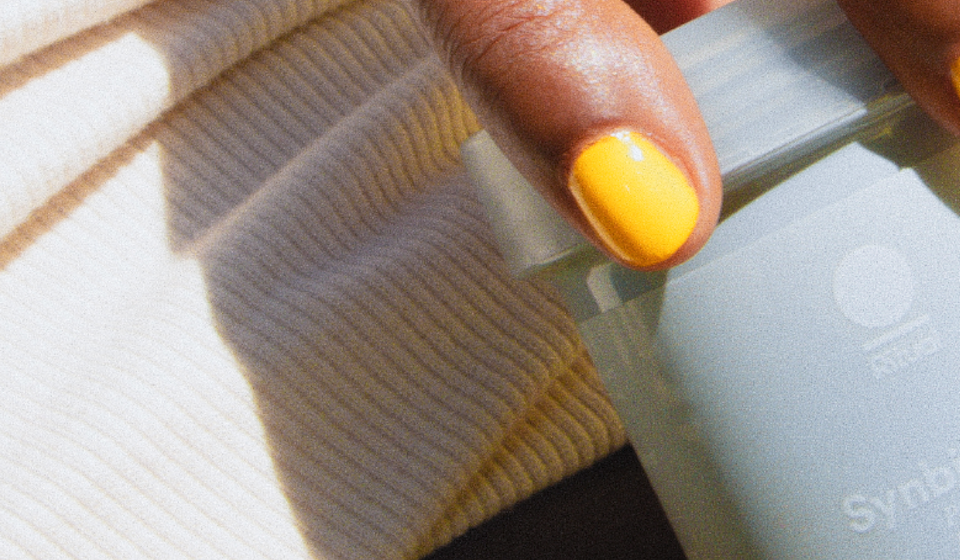Knowing this, the notion of a gut reset may sound appealing. It’s also got some cultural heft — we tend to talk about digestion like plumbing. We can feel "backed-up”, or “stopped,” and infer that, just like with blocked pipes, a vigorous cleanse is needed now and then to keep things running wink wink regularly.
But in reality, our bodies are already very well-equipped with systems like the respiratory system, skin, liver and kidneys to detoxify and cleanse themselves without the need for restrictive diets. (2)
Critically, (and this is really where the buck stops), the idea of needing to cleanse our gut health lacks robust scientific backing.
Research on the effectiveness of a gut reset is limited, and the results of short-term dietary changes are still widely debated among health professionals. (3) While some may suggest that these resets can provide your digestive system a fresh start, there is little evidence to support the need for such extreme interventions in a healthy, functioning body.
Restrictive cleanses can do more harm than good. These may include severe calorie restriction, the elimination of food groups, nutritional deficiencies or the incorrect use and otherwise use of unregulated supplements. Such practices not only fail to offer long-term solutions but can also lead to nutritional deficiencies, disrupt your microbiome, and cause stress on your body's systems.
Like lots of health fads, a gut cleanse is best approached with eyebrows-raised, and a healthy amount of skepticism. Our bodies have natural, ingenious ways of cleansing themselves, and maintaining a balanced, nutritious diet is typically sufficient to support good gut health.
Signs Of An Unhealthy Gut
As the saying goes, hot girls have stomach issues. But when is it actually an imbalanced gut, and when is it natural digestion?
Below are some signs of a gut out of whack:
Digestive Issues: Frequent bloating, gas, constipation, and diarrhea, can all be signs of an unhealthy gut. An optimally functioning digestive system should process food without excessive discomfort.
Fatigue and Sleep Disturbances: An unhealthy gut may contribute to sleep disturbances such as poor sleep, leading to fatigue. The majority of the body’s serotonin (95%), a hormone that affects mood and sleep, is produced in the gut, so gut health is crucial to sleep. (5)
Unwanted Changes to Skin or Irritations: Skin conditions may also be related to an impaired gut. Gut disturbances may contribute to increased "leaking" of certain proteins out into the body, which can irritate the skin. Both the skin and the gut have high levels of nerves (otherwise known as innervated) and are vascularized, meaning both are essential for immune and neuroendocrine function. (6)
Frequent Ailments: If you find yourself getting sick often, part of the problem could be your gut health. A significant portion of the immune system is located in the gut, so an unhealthy gut can mean an impact to the immune system. (7)
How to Get Your Gut Health Back On Track
So what can a hot gal or guy like yourself do at home to get your gut health back on track? Here at Ritual, we recommend having a focus on sustainable, healthy lifestyle changes.
Have a Balanced Diet Rich in Prebiotics and Probiotics: Including a variety of prebiotic-rich foods such as onions, garlic, bananas, and asparagus can help nourish the beneficial bacteria in your gut. Probiotics, found in yogurt, kefir, and other fermented foods, introduce beneficial bacteria to your digestive system. Both are essential for maintaining a healthy microbiome.
Utilize the Benefits of Fermented Foods and Fiber: Fermented foods like sauerkraut, kimchi, and miso are not only rich in probiotics but also help in breaking down food to more digestible components, thus enhancing gut health. High-fiber foods are crucial as they help promote regular bowel movements and prevent constipation, which can strain the gut over time. Aim for a mix of soluble and insoluble fiber to support gut functions and encourage the growth of healthy bacteria.
Focus on Adequate Hydration: Water helps dissolve fats and soluble fiber, allowing these substances to pass through more easily. Proper hydration is critical for maintaining the mucosal lining in the intestines, as well as aiding in digestion and preventing constipation.
Manage Stress and Ensure Adequate Sleep: Stress can profoundly affect your gut health and alter gut bacteria and increase gut permeability. Effective stress management techniques such as [mindfulness],(http://ritual.com/articles/meditation-for-beginners) yoga, and regular exercise can improve not only your mental health but also help support gut health. (7) Also, focus on hitting the hay, as the body’s digestive system recovers and regenerates during sleep. (8)
Incorporate a gut health supplement: Our Synbiotic+ is more than just a probiotic; it has 3-in-1 clinically-studied prebiotics, probiotics and postbiotic to support a balanced gut microbiome. This game-changing supplement includes probiotic strains LGG® & BB-12® that support healthy regularity as well as relief of occasional discomforts such as mild and occasional bloating, gas, and diarrhea. In a study that modeled the human colon, these ingredients worked synergistically to support the production of butyrate, a major source of energy for the cells that line the colon.*











